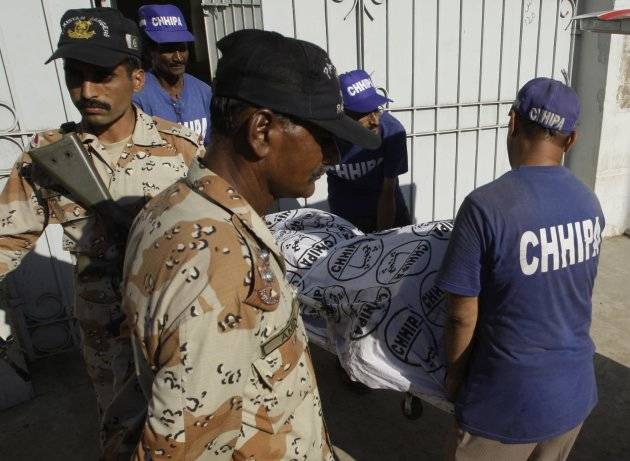From US boarding school to al-Qaida suicide bomber

From US boarding school to al-Qaida suicide bomber - Yahoo! News

Moeed Abdul Salam didn't descend into radical Islam for lack of other options. He grew up in a well-off Texas household, attended a pricey boarding school and graduated from one of the state's most respected universities.
But the most unlikely thing about his recruitment was his family: Two generations had spent years promoting interfaith harmony and combatting Muslim stereotypes in their hometown and even on national television.
Salam rejected his relatives' moderate faith and comfortable life, choosing instead a path that led him to work for al-Qaida. His odyssey ended late last year in a middle-of-the-night explosion in Pakistan. The 37-year-old father of four was dead after paramilitary troops stormed his apartment.
His Nov. 19 death went largely unnoticed in the U.S. and rated only limited attention in Pakistan. But the circumstances threatened to overshadow the work of an American family devoted to religious understanding. And his mysterious evolution presented a reminder of the attraction Pakistan still holds for Islamic militants, especially well-educated Westerners whose Internet and language skills make them useful converts for jihad.
"There are things that we don't want to happen but we have to accept, things that we don't want to know but we have to learn, and a loved one we can't live without but have to let go," Salam's mother, Hasna Shaheen Salam, wrote last month on her Facebook page.
The violence didn't stop after Salam died. Weeks after his death, fellow militants killed three soldiers with a roadside bomb to avenge the raid.
It is not clear to what extent Salam's family knew of his radicalism, but on his Facebook page the month before he died, he posted an image of Anwar al-Awalki, the American al-Qaida leader who was killed in a U.S. drone strike in Yemen, beside a burning American flag. He had also recently linked to a document praising al-Awalki's martyrdom and to a message urging Muslims to rejoice "in this time when you see the mujahideen all over the world victorious."
After his death, the Global Islamic Media Forum, a propaganda group for al-Qaida and its allies, hailed Salam as a martyr, explaining in an online posting that he had overseen a unit that produced propaganda in Urdu and other South Asian languages.
A senior U.S. counterterrorism official said Salam's role had expanded over the years beyond propaganda to being an operative. The official spoke on condition of anonymity because of the sensitivity of the information.
The family, originally from Pakistan, immigrated to the U.S. decades ago. Salam's father was a pilot for a Saudi airline, and the family eventually settled in the Dallas suburb of Plano. Their cream-colored brick home, assessed at nearly $400,000, stands on a corner lot in a quiet, upper-class neighborhood.
The family obtained American citizenship in 1986. Salam attended Suffield Academy in Connecticut, a private high school where tuition and board currently run $46,500. He graduated in 1992.
A classmate, Wadiya Wynn, of Laurel, Md., recalled that Salam played varsity golf, sang in an a cappella group and in the chamber choir, and that he hung out with a small group of "hippie-ish" friends. She thought he was a mediocre student, but noted that just being admitted to Suffield was highly competitive.
Salam went on to study history at the University of Texas at Austin and graduated in 1996. His Facebook profile indicated he moved to Saudi Arabia by 2003 and began working as a translator, writer and editor for websites about Islam.
"Anyone can pick up a gun, but there aren't as many people who can code html and understand the use of proxies," said Evan Kohlmann, a senior partner a Flashpoint Global Partners, which tracks radical Muslim propaganda.
From US boarding school to al-Qaida suicide bomber - Yahoo! News

